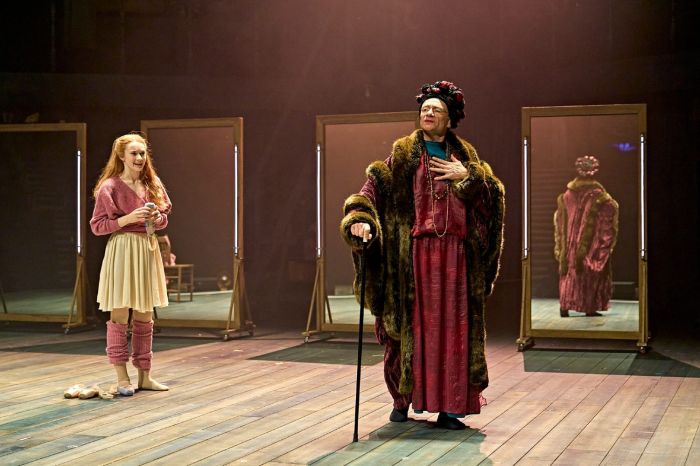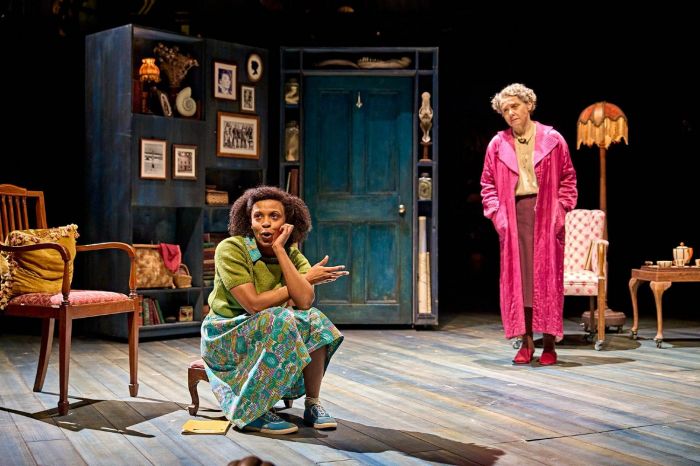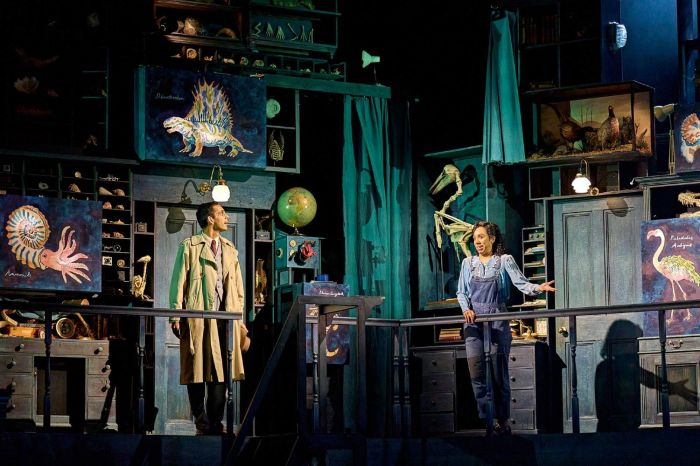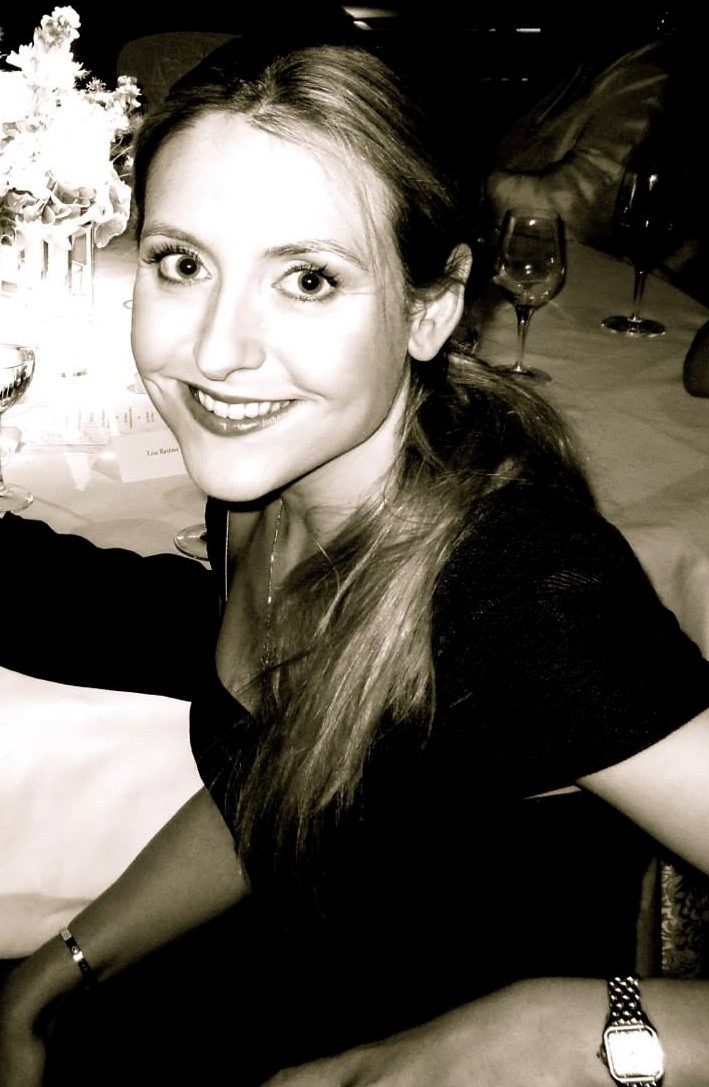
Noel Streatfeild’s beloved 1936 novel about three very different adopted sisters who attend stage school is underscored by serious subject matter. Pauline (Grace Saif) is rescued from a shipwreck, Petrova (Yanexi Enriquez) is orphaned in Russia, and Posy (Daisy Sequerra) is relinquished by her ballerina mother who has ‘no time for babies’.
The three girls, from their disparate backgrounds, are adopted by professor and palaeontologist, Great Uncle Matthew (Justin Salinger), known as GUM, who places the girls in the care of his great-niece, Sylvia (Pearl Mackie), and Nana (Jenny Galloway) at 999 Cromwell Road, whilst GUM carries on his gallivanting abroad.
The sisters embark on their own set of adventures closer to home, but they are still three abandoned children who encounter poverty and work woes, although even in their hardship, Streatfeild’s optimism and sparkiness shines through.
This adaptation by Kendall Feaver imbues this positivity too, however there is occasional friction and tetchiness between the sisters. There is, however, great verve, gumption and joy too as the girls blossom and discover their respective passions: Pauline reveals a talent for acting, Petrova for mechanics and Posy for ballet.
Under the direction of Katy Rudd, this is an exquisite production, which is full to the brim with spectacular theatricality and fabulous performances across the board.
Samuel Wyer’s costumes are spectacular, and Frankie Bradshaw’s set is stupendous, with GUM’s specimens displayed in glass cases spiraling upwards, across the house’s many storeys, while Ash J Woodward’s video projections and Paule Constable’s lighting produce the magical effect of movement: dinosaurs stagger and sea waves swish across the stage.
Scene changes are spectacularly fluid. Fantasies or flashbacks are convoked as if from a cloud of smoke, the switch occurring in innovative, immediate ways. The reel of a remembered life in the mind of Posy’s Russian dance tutor, Madame Fidolia (superbly played by Salinger) is majestic in its ruminative beauty.
The household is presented as a warm matriarchy, the sisters cared for by Sylvia and Nana, and their motley crew of lodgers, together forming a somewhat unconventional, non-nuclear, but nonetheless loving family that offers the girls scope to develop their individual passions, and which encourages them to look outwardly rather than being constrained by contemporary societal expectations.
There are moving moments around the girls’ complex emotional states and insecurity that make it feel less like a children’s story and more like a tale that has lessons applicable at any stage of life. The play focuses on the essence of the story, which is that each of the girls is looking for escape, and each of them finds it through the discovery of her vocation.
Lessons around resilience in hardship are woven in, though not didactically or condescendingly, reminding both children and adults alike what is most important in life: to find your vocation, and to have faith in yourself.
The girls are surrounded by interwar, unmarried women who have independently built impressive lives including dance tutor, Theo Dane (Nadine Higgin), and lesbian lodger Dr Jakes (brilliantly played by Helena Lymbery).
The music, composed by Asaf Zohar, is evocative of a bygone era and Ellen Kane’s delightful choreography conjures the splendour of a silver-screen musical. It would be wrong to view this story as an outmoded one: self-sufficient, strong femininity lies at its core, a theme that is still wholesomely gutsy these days.
Ballet Shoes is at the National Theatre until 22 February



Elisabeth Rushton
Elisabeth has over 15 years of experience as a luxury lifestyle and travel writer, and has visited over 70 countries. She has a particular interest in Japan and the Middle East, having travelled extensively around Saudi Arabia, Oman, Jordan, and the UAE. A keen skier, she has visited over fifty ski resorts around the world, from La Grave to Niseko. She writes about a broad spectrum of subjects...(Read More)










